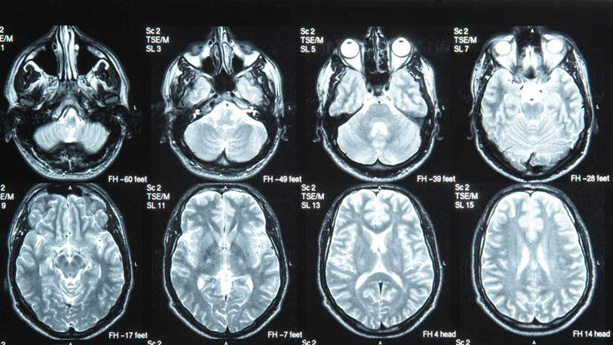I have just seen a news, that I have liked, for two reasons: because it has to do with some Spanish women scientists –it is sad, but in Spain there are few women scientists—and because they have led a very important project, about Ictus. Concretely, the news says the following: “Spanish researchers develop a peptide with potential in the treatment of Ictus”.
With six million deaths, per year, ictus or stroke is the second cause of death, in the world, and the first of disability in adults, a high prevalence, that will increase with the aging of the population, and for now, a team of Spanish scientists has laid the groundwork for future therapy.

Images of a brain with Ictus
Currently, the only effective therapies, for the treatment of ischemic stroke, are aimed at dissolving thrombus or the blood clot, causing arterial blockage, some drugs, that must be given within the first 4 hours, after the onset of symptoms, and are only useful to 10% of cases.
Now, a team, led by researchers (women) from the Institute of Biomedical Research (CSIC-UAM) and CIBERNED, has laid the foundation, to develop a new therapy for stroke.
The team, made up entirely of women, led by Teresa Iglesias and Margarita Diaz-Guerra, from the Institute for Biomedical Research (CSIC-UAM), has developed a neuroprotective peptide --derived from the Kidins220 / Arms protein-- able to reduce neuronal death, by excitotoxicity, one of the pathological mechanisms, implicated in stroke and other neurodegenerative diseases. The study, published in the journal “Cell Death and Disease”, explores the potential of Kidins220 / ARMS, as a therapeutic target.
The research group has been characterizing prosurvival intracellular signaling cascades, ie, groups of molecules, that cooperate, between them, to cause cells to stay alive and whose activity is profoundly altered, when the stroke occurs.
The idea was to use this knowledge, to develop therapeutic tools, to interfere in the process of secondary neuronal death that occurs after primary damage, and is responsible for the expansion of the infarct core and the worsening of neurological damage.
"We can not predict when a heart attack will happen, either avoid the primary ischemic damage", caused by decreased blood flow, to the affected area, but "it would be possible impact on secondary neuronal death, ie, protect the surrounding infarction neurons, to better support the cascade of events, ending with the function of their ways of survival", the article explains.
"Really, this is a fight against time and these new therapeutic strategies could have an early neuroprotective effect and reduce the neurological involvement of patients, while the blood flow is restored", say the authors of the work.
Well, I hope that you have thought how interesting is this work, such as I did.
Until my next post, kind regards,
Luis.
Sponsored by Costaluz Lawyers.
Please click below:
